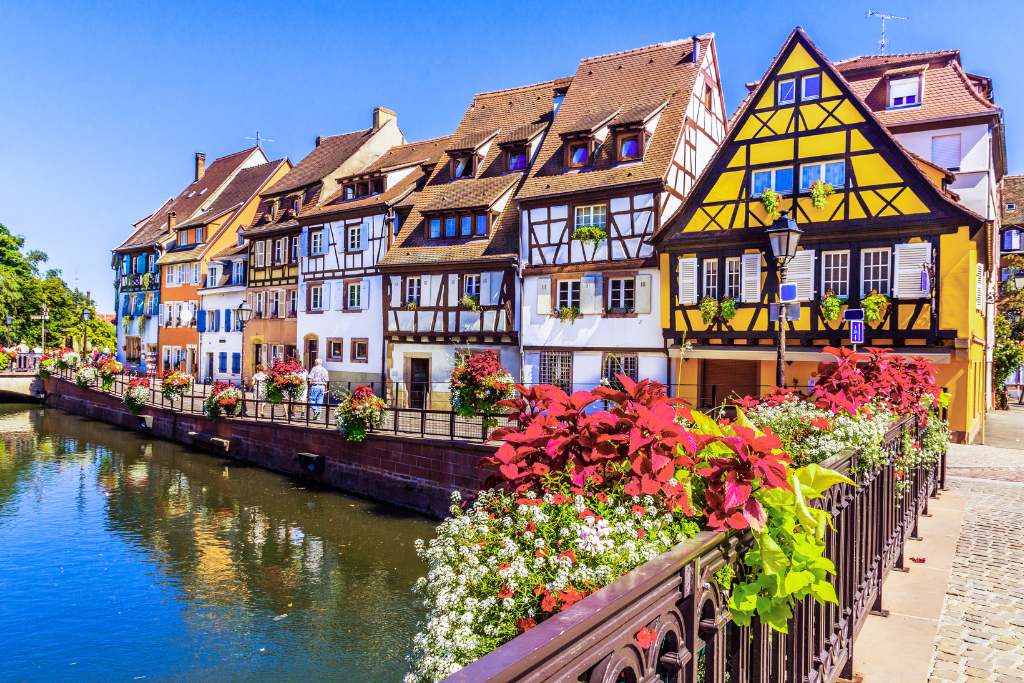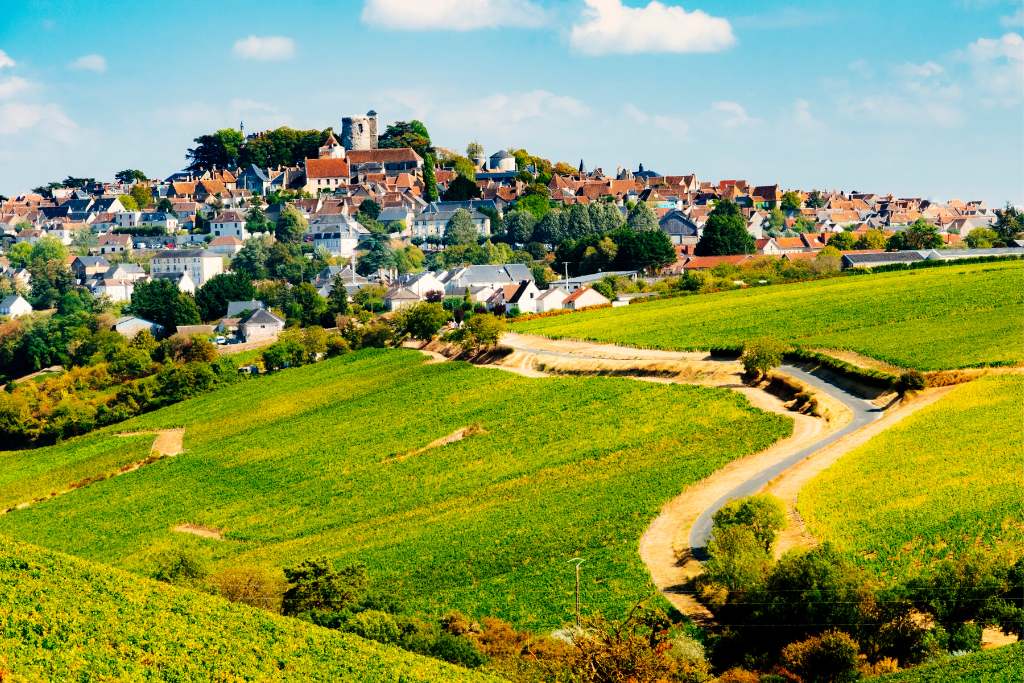1. First steps before moving to France
Visa Requirements
Before moving to France from the UK, you need to be aware of what documents are needed before the big day. Following Brexit, British residents will be required to apply for visas in order to work, study, or live in France. UK residents who have been lawfully residing in France for less than five years on December 31, 2020, are eligible to apply for a five-year residence visa. They will be eligible for a 10-year permanent residence visa or perhaps French citizenship once this permit expires.
Here are some of the guidelines for your move:
- You can still travel and ask for visas with a British passport issued before January 1, 2021, until it expires (even if bearing the mention of the European Union).
- British residents married to European nationals who intend to establish or live in France for more than 90 days (at the same time as their spouse or rejoining him/her) will not need a settlement visa (under EU Directive 2004/38).
- Other British passport holders are not affected, such as the following: British Nationals (Overseas), British Overseas Territories Citizens, British Overseas Citizens, British Protected Persons, and British Subjects.
Check if you require a visa or permit to work in France and how to get one if you do.
Withdrawal agreement in France
An individual is eligible for a residency permit ‘withdrawal agreement’ of either 5 years (if you have lived in France for less than 5 years) or 10 years (if you have stayed in France for more than 5 years) if you apply online before July 1, 2021
Student visa
Since Brexit, registration is needed with Campus France to get a visa. The step can take up to 6 weeks for the whole process. It is important and mandatory to register on the “Études en France” platform before applying for a long-stay student visa. For a course exceeding six months, an individual will be issued a long-stay visa, equivalent to a residence permit, which is subject to further formalities on your arrival in France.
Finding a job
As of September 2023, France’s unemployment rate was at 7.2% with 2.2 million people not actively working.
France has a high demand in many sectors including languages, information technology, web development, data analysis, medicine/nursing, design, project management, sales, customer service, to name a few.
When finding a job in France, you can use employment vacancies and internet job postings like Pôle emploi and Indeed.
Institut national de la statistique et des études économiques (Sept 2023)
Getting there
You may make an informed decision on how to move to France from the UK by looking into these options for transportation.
Flying is the most convenient way to move to France. You can book your flight to get there, for example through its major airport, Charles de Gaulle International Airport. The flight from the UK to France is between 90 minutes and two hours depending on where you takeoff.
The fastest train is the Eurostar from London St. Pancras International Railway Station to either Lille Europe (1 hour and 22 minutes) or Gare du Nord in Paris (2 hours, 16 minutes).
The ferry ride from Dover to Calais is the quickest ferry ride to get to France from the UK. This trip will take about 1 hour and 30 minutes.
Be sure to arrive in France two or three days before your move in date so you have time to take care of last-minute tasks.
Must dos before your arrival
You may find it exciting and challenging to move to France. You will be more prepared for your new life if you are aware of these things beforehand.
- Apartment Hunting: Plan ahead by researching and scheduling apartment visits before your arrival. This proactive approach will help streamline your housing search process and ensure a smoother transition.
- Consider learning French, the official language of France, as some residents have basic knowledge of English however most, if not all residents prefer to speak French.
- Be prepared to walk to all your destinations, of course there are taxis and cars available however, most residents walk or take their bike to most destinations!
- If you are traveling with pets, be prepared with all the travel requirements and guidelines for traveling with your small fur family.
- Be sure to book an appointment in advance to get your French National ID card when you arrive in France!
Get your French National ID card
The French national identity card (CNI) is a government-issued identification document that comprises an electronic ID-1 card with a portrait, name, and address. While the identity card is not necessary, all citizens must have valid government-issued identification.
To acquire a National Identity Card (NIC), you must first schedule an appointment with the French Consulate General using our online scheduling system. On the day of the appointment, bring the necessary documentation according to your situation: if you are a minor, if this is your first request or a renewal.
2. Upon your arrival in France
Must dos right upon your arrival
- Get familiar with your neighborhood, and make sure to take note of the important emergency numbers.
- Locate the essential facilities like the nearest hospital, police station, and fire department for your safety and in case of emergency.
- Be prepared for the time difference between France and the UK. France is one hour ahead of the UK.
Prepare for the currency in France
France’s official currency is the euro. The euro’s currency sign is €, and its three-letter code is EUR. Although it was previously believed that cash must be carried at all times in France, the country has become increasingly modernized in recent years, making card payments widely available. Nevertheless, it’s always a good idea to have cash as a backup in case a small local shop doesn’t accept cards.
Healthcare
Before leaving the UK, you need to obtain a free UK Global Health Insurance Card (GHIC) or European Health Insurance Card (EHIC). If you already have an EHIC, it will be valid as long as it is current. The GHIC or EHIC permits you to state-provided medical treatment if it is required during your trip.
Setting up your cell phone
When moving from the UK to France, you can still use your mobile phone throughout the EU, but you may be charged extra for it. Therefore, it’s beneficial to look for a new mobile provider in France.
You will have the option of purchasing a prepaid SIM card or a mobile phone contract. Prepaid SIM cards are often the quickest and easiest way to connect. You will be able to make calls, send text messages, and access mobile data with these. This is a decent alternative if you only need a French SIM card to get by and don’t want to commit to a long contract.
Orange, SFR, Bouygues Telecom, and Free Mobile are the four major phone and broadband service providers in France. They all provide additional services such as television and fixed phone lines in addition to internet and mobile phone subscriptions (collectively known as a “box” offer). They all have their own phone and internet infrastructures, and their coverage is comparable. Not only that, but they all have low-cost brands or offshoots, such as Sosh (Orange) and RED by SFR.
If you use a mobile phone in France, it is important to be aware of the local regulations. Some French legislation concerning mobile phones are as follows:
Drivers who use their handheld phone while driving face a fine and points on their license unless they stop and pull over into a designated parking area.
Mobile phone use is prohibited on school grounds for children aged 3 to 15.
Getting a driver’s license
If you have a UK driver’s license that was issued before January 1, 2021, you can still use your license in France as long as it is still valid. Most paper licenses can be used until a person turns 70. If your UK license is expired or has less than 6 months left on it, you must get a French license. Your license can only be traded if it will expire in the next 6 months.
If you got your first license in the United Kingdom on or after January 1, 2021. After your residency permit (carte de séjour) is given to you, your license will be good for a year, however, if you plan to stay and drive in France for more than a year, you must exchange your UK license for a French one during the first year.
Setting up a bank account
A European bank account is normally open to everyone of legal age with a valid passport or other form of national identity. Although it is possible to open a French bank account without a French address, your options are somewhat limited. Almost every bank in France will ask for proof of address, such as a utility bill.
France has over 300 banks of which the most popular ones are Banque Populaire, BNP Paribas, Crédit Agricole, Crédit Mutuel, and La Banque Postale.
3. Best places to live in France

Moving to France means deciding where you want to live and considering your priorities. We’ve listed the best places to live in France!
|
Neighborhood |
Characteristics |
|
Paris |
Best for job options and universities |
|
Nice |
Mediterranean weather year-round |
|
Lyon |
Culinary capital of France |
|
Marseille |
Best for low cost of living and healthcare system |
|
Strasbourg |
Best for raising a family and foreigners |
Setting up home services
France’s electricity is about 220 volts and 50 hertz, which is the same as most of the world outside of North America. If you come from a country where appliances are made for 110 volts/60 hertz, you will need a voltage converter or a transformer, depending on what you want to use in France. Most of France’s electricity comes from nuclear power plants. The most popular electricity providers in France are EDF, Alterna, Cdiscount Energie, Total Direct Energie, and Engie. You won’t be able to choose your own electricity provider, the town you live in will be choosing for you.
Gas is also a good option in France, but it is less eco-friendly and since the country encourages green practices, they recommend it a lot less. EDF is the main alternative natural gas supplier in France. EDF is a global player in the natural gas market. Because natural gas is mostly utilized for heating, French gas consumption is strongly weather dependent.
To set up water in France you have to create an account with the local water provider. To find out who the local provider is in your area contact your local Mairie. Water is relatively expensive in France and is charged by the cubic meter at commune-set tariffs. Veolia is the largest water provider in France, and the other supplier is Saur Group Suez Environnement (previously Lyonnaise des Eaux).
Should you rent or buy?
As of July 2023, the median cost of buying a property in France is €492,222; as of October 2023, the median rent for a 1-bedroom apartment in the city center is €718.35.
Trusted websites such as French-Property and Logic-Immo are often used to find available apartment listings and property or engage with real estate agents for assistance.
4. Cost of living in France
|
Category |
Monthly cost |
|
1 bed apt rent inside city center |
€718.35 |
|
Groceries Numbeo’s grocery list |
€314.92 |
|
Utilities Electricity, heating, cooling, water, garbage |
€169.45 |
|
Internet with 60 Mbps |
€29.66 |
|
Transit pass |
€61.00 |
|
Entertainment Meal, taxi, movie |
€82.00 |
|
Gym membership |
€32.82 |
|
Total |
€1,408.20 |
*prices in Euros
5. The weather in France
France has four seasons – summer, fall, winter, and spring – which may vary in different parts of the country.
The spring months of March through May have beautiful weather. The frequent precipitation is countered with a comfortable temperature and plenty of sunshine. Even though it may be hot from June through September because of the summer, especially in the South, temperatures rarely get above 35 degrees Celsius.
There are some lovely autumn days from October through December, although it is frequently rainy. Snow and rain can occasionally follow each other in January and February, and the temperature might drop into the negatives, especially in the highlands.
6. What to do as a local in France
First thing on your list to become a local in France is to purchase or rent a bike! Most residents will ride their bike and use public transportation for everyday travels.
It is known that the people of France love to relax and not take life too seriously. Do not be afraid to immerse yourself in the culture and talk to locals! Walk around your neighborhood and spot your local bars and cafés to enjoy a drink. The most famous cafés in France are Café de la Paix, Les Deux Magots, Café de Flore, to name a few.
If you truly would like to become a local, be sure to educate yourself on France’s history and culture. The best way to do this would be to take a stroll in the museums or walk around Paris where there is a piece of history at every corner!
7. Fun facts about France
- Fun Fact #1: France is home to the Eiffel Tower which weighs over 10,000 tons.
- Fun Fact #2: France is home to the longest beach in Europe known as the Bay of Biscay in southwestern France.
- Fun Fact #3: France is known for its housing of the world famous Mona Lisa painting by Leonardo da Vinci, which can be seen in the Louvre Museum in Paris.
Conclusion
Moving to France from the UK can be fun and rewarding, but it also needs careful planning and preparation. Moving to France from the UK entails more than just selecting a home close to your preferred pâtisserie, despite the fact that this is a significant advantage.
Want to know more about moving from the UK to Spain? Check out our article on Moving to Spain from UK: 8 Things to Do and Know.






